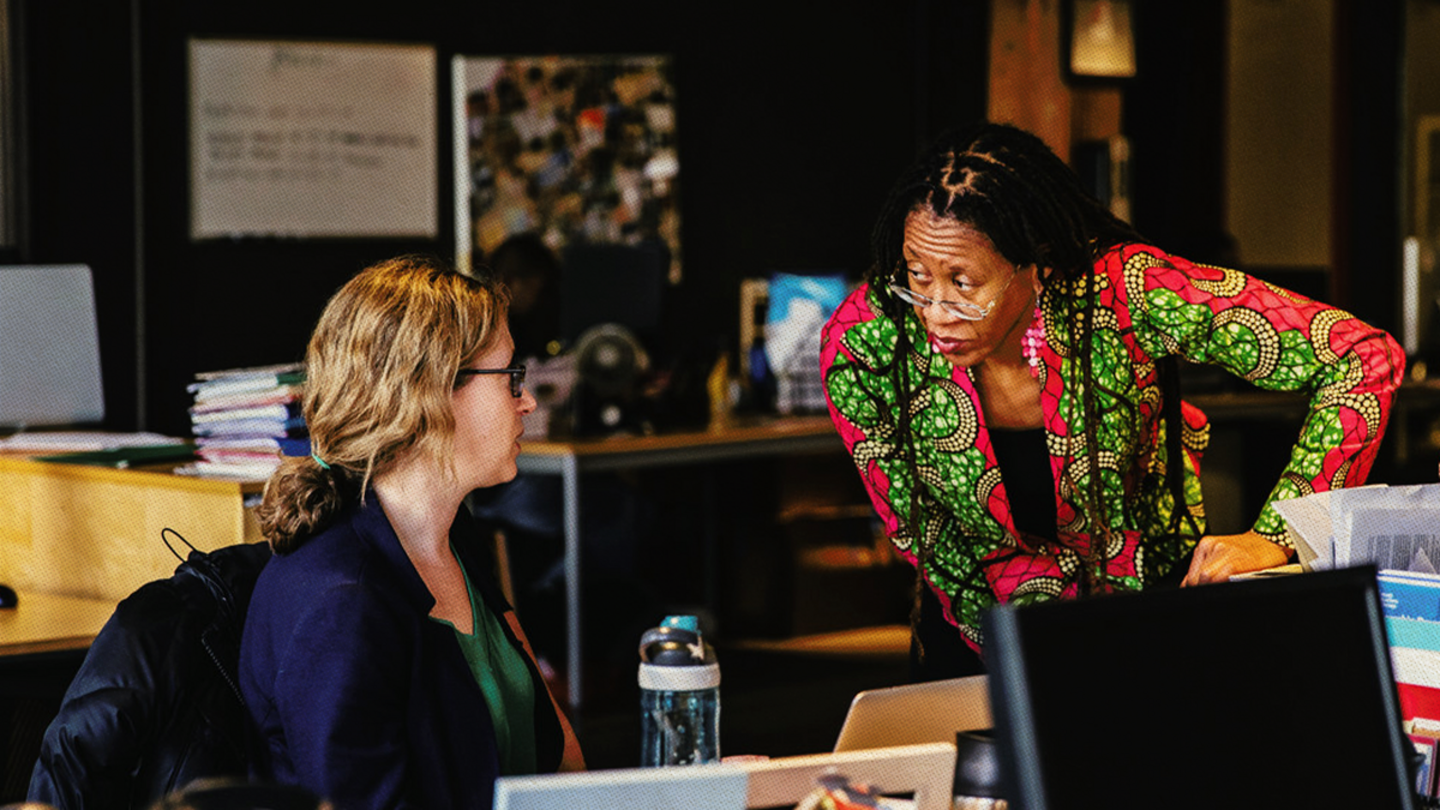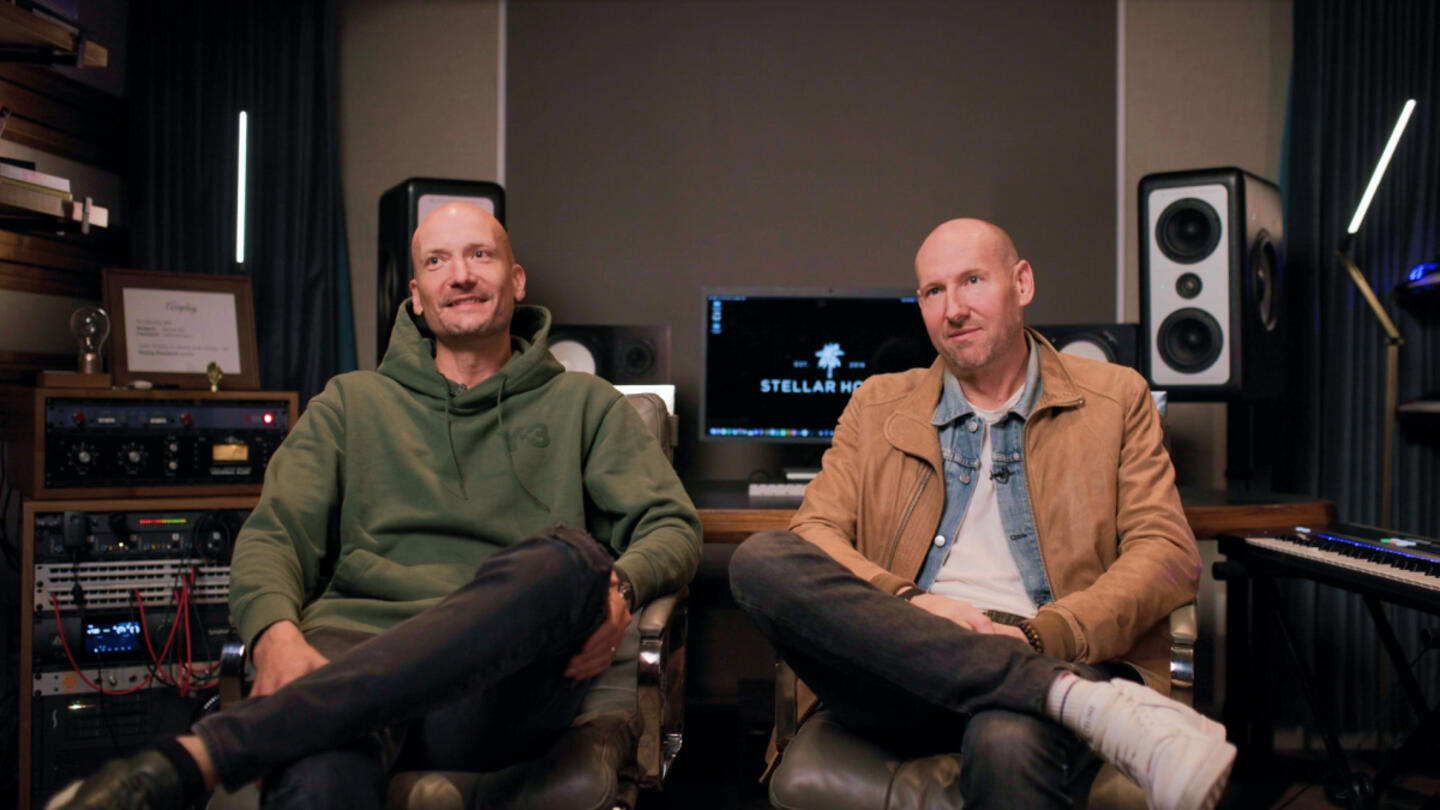Five years ago, a digital product manager came up with a great idea for his job at a consumer packaged goods company in Wisconsin, but he feared what his boss might say to such an out-of-the-box concept.
Until this point, he assumed he'd be leaving and taking his great ideas with him. His department was already in flux, and it felt like his employer held all the power; that it wasn’t his place, as a midcareer employee, to have autonomy over his job description and duties. That's when he met Michael Horn, the co-founder of the Clayton Christensen Institute, where he works with education and workplace leaders to make their roles available at their companies more mission-driven and intentional.
The employee's idea would leverage his coding skills to create a quicker, more agile product development process for company executives and had the potential to dramatically improve the packaging company’s productivity. Horn encouraged him to tell his boss, who loved it so much, he created a role that fit the concept.
"It turned out didn't have to leave the company that he loved," Horn said. "He could express the progress he really wanted to make and how he could contribute. [His] organization responded to it and said, 'That'll help us and it'll help you, don't go anywhere."
This is one of the anecdotes from Horn's book, "Job Moves," and showcases the way both employers and employees benefit from empowered workers who engage in open and creative discussions that showcase their talents and potential.
This example, from Horn’s book coming out in November, "Job Moves,” is just one of many win-wins that can happen when employers recognize each individual's unique goals, talents, and potential, and work with them to understand how they can be applied to help the company grow.
“Everyone thinks employers have all the power,” Horn said. “They hire you. But you also hire your employer. You decide whether this is a job [you’ll] take, whether the money is worth it. There are good things and bad things, every job has a little bit of both. Those [trade-offs] are decisions you’re making. We want to help people have a mindset shift of, you also get to hire your next job."
Horn's point is both employers and employees benefit when everyone is excited by and engaged in the work at hand. He sums up the central issue simply: “Organizations are very organization-centric, and not necessarily human-centric."
Horn aims to fix that through his work.
Sign up for Stand Together's Rethinking Work & Learning newsletter to get the latest stories, ideas, and trends on the future of employment.
The key ingredient missing in the workforce
The problem, explained Horn, starts right at the beginning. It’s in the job description.
Rather than employers considering, “How do we maximize the talent coming in the door and make roles fit for them?” as Horn described, they create rigid job parameters that force applicants into boxes they struggle to escape. It sets everyone up for failure..
The current model relies on a four-year university degree to somehow deem a candidate talented and worthy, but it’s “not very helpful, 50% accuracy at best on a good day," said Horn.
These rigid requirements lead to employees focusing on meeting employers’ often narrow parameters and job roles, rather than considering ways their individual experiences, interests, and talents (beyond their degree) can benefit the organization’s mission. If employers were able to hire individuals based on these merits instead, it could have tangible benefits for both sides.
“There's so much great human capital, so much talent potential sitting there that can do great work, and it’s sitting on the sidelines,” he said. "Sixty-two percent of adults are working with no college degree, and many of them have been gainfully employed and done great work. They’re being excluded.”
When they are, employers miss out on a huge untapped talent pool as well. This isn’t to say that a college degree is useless — but it’s just one small piece of the holistic picture of someone's experiences, perspectives, and potential. For instance, although the person Horn mentioned above was an example of an employee who did have a four-year degree, his employer didn’t initially create the opportunity for him to explore and implement his other talents in coding into the role.
“The employers are losing out on really talented people,” Horn said. “Neither side is making progress as a result of this.”
Besides creating a workforce that is open to a variety of backgrounds, experiences, and perspectives, merit-based hiring also has implications for higher education. If employers are more open to non-traditional professional backgrounds, it means that less people will be incentivized to pursue a four-year degree, and that other options like trade school, microcredentials, apprenticeships, and lived experience will hold higher value.
These alternate educational programs are already growing in popularity. "People are voting with their feet,” Horn said. “Our neat, tidy categories that we have constructed over the last hundred years are breaking down. That’s a good thing, because individuals are saying the one-size-fits-all does not work, and they can better find what they need as individuals. It’s good for society as well because [members] can better live up to their potential."
How to be a part of the shift toward merit-based workplaces
There are tangible steps both employers and employees can take to build a workplace where they’re able to collaborate toward more purpose-driven work that furthers a company’s mission. When employers remember that human capital can improve their profits and productivity, and employers view their talents as assets to be marketed, both sides stand to benefit.
For employers, Horn recommends three steps:
1. Understand your employees’ needs and goals: "Understand why people are applying to [your organization], what’s driving their shift, what progress looks like for them. And then build it into your system, including the performance reviews, so that this is a workplace where your team is not just hiring on day one, but they're rehiring each and every day."
2. Make job descriptions intentional and specific: “Make it something that is more focused on what people will do each day and the values or soft skills or aptitudes needed to be successful … as opposed to trying to be abstract or name [broad] skills and make it really opaque, which causes people to default to [focusing on] four-year degrees.”
3. Create spaces for open discussions regularly: "Hiring managers, managers, and HR [can] really build this into the process. Then it’s not [just up to] the manager to remember to ask you, ‘Is this job still helping you progress?’ It's actually built into the systems themselves.”
For employees, Horn’s advice focuses on taking time to reflect on your goals and unique experiences, to be ready when the opportunities for those open discussions do come up:
- Prior to applying for a role, reflect on your goals and parameters: “Be conscious about, ‘What trade-offs am I willing to make to get to do the things that I really want to do? Every job has some [negative] element in it, things that are not aligned with your skill set or things that drain your energy. Be ready to consciously choose.”
- Be able to highlight your unique qualities and background as an individual: “Really learn to tell your story. Why are you here, what can you contribute, and how are you gonna help them? [That also answers] how the job is also going to help you in your journey."
- Consistently work to understand how your role and work is adding value or solving problems for the team or customers around you. The more you understand how your contribution is interconnected to helping solve problems, the more meaning and purpose can help you get through the more challenging or difficult days.
If employers and employees take these steps, it can result in more openness, communication, dedication, and productivity on both sides, which leads to a better bottom line for the company overall: “People work better when they're able to bring their full selves to work, and that happens when you have more agency over [your role in a company.]. The right job allows you to have those conversations,” Horn said.
If enough organizations are able to start shifting to more mutually beneficial, purpose-driven work that uplifts their employees’ individual talents, it means communities uplifted by members who are able to explore and pursue their full potential as individuals — and that means a better society for everyone.”
"We’re not asking employers to abandon their business goals,” Horn said. “They have to make progress against those. But if we truly understand how someone can contribute and what drives their energy, then the employer [can ask] … What does it look like to make progress as an individual at all stages of life? And how do we structure employment through the progress that individuals are desiring — just what they think their jobs are?”
***
The Charles Koch Foundation, as part of the Stand Together community, funds cutting-edge research and helps expand postsecondary educational options.
Learn more about Stand Together’s efforts to transform the future of work and explore ways you can partner with us.

Here’s how to bridge the disconnect between employers and employees.

Lessons learned from Colorado.

Could a program built to develop music talent change the way we think about education?

How to help the talent of today fill the jobs of tomorrow.
